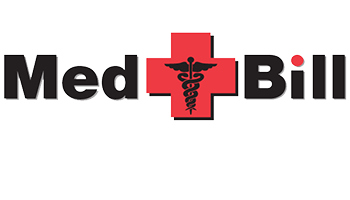PATIENT FAQS
How are rates calculated?
Most Fire Departments and Ambulance Services utilize cost reporting to calculate ambulance rates.
Costs taken into consideration but not limited to:
Direct and Indirect Costs of ambulance service operations, supplies, vehicles, gasoline, vehicle maintenance, life saving equipment, EMT's, Paramedics payroll, Additional EMT and Paramedic training, etc.
I have insurance. Will they cover this?
Most insurance companies do cover emergency ambulance transports as long as the transport meets medical necessity and emergent requirements.
Each State Code defines Emergency, Here is the Indiana State Code definition of Emergency:
IC 27-13-1-11.7 "Emergency"
Sec. 11.7. "Emergency" means a medical condition that arises suddenly and unexpectedly and manifests itself by acute symptoms of such severity, including severe pain, that the absence of immediate medical attention could reasonably be expected by a prudent lay person who possesses an average knowledge of health and medicine to:
(1) place an individual's health in serious jeopardy;
(2) result in serious impairment to the individual's bodily functions; or
(3) result in serious dysfunction of a bodily organ or part of the individual.
I want to provide my insurance information. How do I do that?
Please click here to submit your insurance information using our secure website. You may also call to submit your information over the phone, please call 317-849-6628 press 1. You can complete the form on the back of your invoice and mail it to us.
Med-Bill
PO Box 501368
Indianapolis, IN 46250-6368
You can complete the form on the back of your invoice and fax it or email to us:
Fax: 317-849-6632
Email: Billing@getmedbill.com
Please remember to provide:
Insurance carrier, Claims Address, Subscriber, Subscriber Date of Birth and ID/Policy and Group Number.
I received a check from the insurance company made out to me/spouse. It only covers a portion of my invoice. Will you accept this as payment in full?
You received a check because the provider is not participating with your insurance carrier, You will be responsible for the entire bill. Please endorse the check to the provider and send a personal check for the remaining balance.
My insurance only paid a portion of my bill, but I also have insurance with another company. Can you bill them?
Yes, we will bill the balance of your invoice to your secondary insurance carrier. Please click here to provide that information to us, including the name of your insurance carrier, the name of the insurance subscriber and their birth date, the address for the insurance claim to be mailed to, and all ID/policy and group numbers.
I do not have insurance. What are my payment options?
You have several options for paying your invoice. First, you may pay online using a credit card however some fees may apply depending on provider.
Your second option is to mail your payment in full following the instructions on the invoice. Please include the tear-off portion of the invoice so that your account may be properly credited.
Finally, you may choose to call our toll-free number to provide payment information to one of our friendly representatives over the phone. Our office hours are from 8am to 4pm, Monday through Friday.
If someone else calls 911 and I get transported, am I responsible for the bill?
Any person or persons treated by EMS will be responsible to pay for services rendered to them. If you are conscious and alert, you can refuse transport however if a patient is unconscious or has an altered mental status they will be treated due to implied consent and will be responsible for the cost.
What is the difference between BLS and ALS emergency transport?
ALS means Advance Life Support and BLS means Basic life Support. ALS and BLS are both life supporting mechanism but one is just basic and the other one is advanced.
Both the BLS and ALS are designed for pre-hospital life support and transportation of a patient to the hospital. A BLS unit will have two Emergency medical Technicians. On the other hand, an ALS unit will have a paramedic apart from the Emergency medical Technician
One of the main differences between Advance Life Support and Basic life Support is that the latter is non-invasive. This means that a BLS cannot use needles and other devices that makes cuts in the skin. The BLS providers cannot administer medicines. On the other hand, An ALS provider can give injection and even administer medication to a patient. An ALS can give basic treatment in case of cuts or injuries whereas a BLS person does not have the right to do it.
Why do you need my signature when I have Medicare?
Medicare requires a patient signature if the patient is able to sign.
If the patient is mentally or physically incapable of signing, Medicare requires the reason for the inability to sign be documented and requires secondary signatures, such as Power of Attorney, Hospital Staff, Caretaker, etc.
